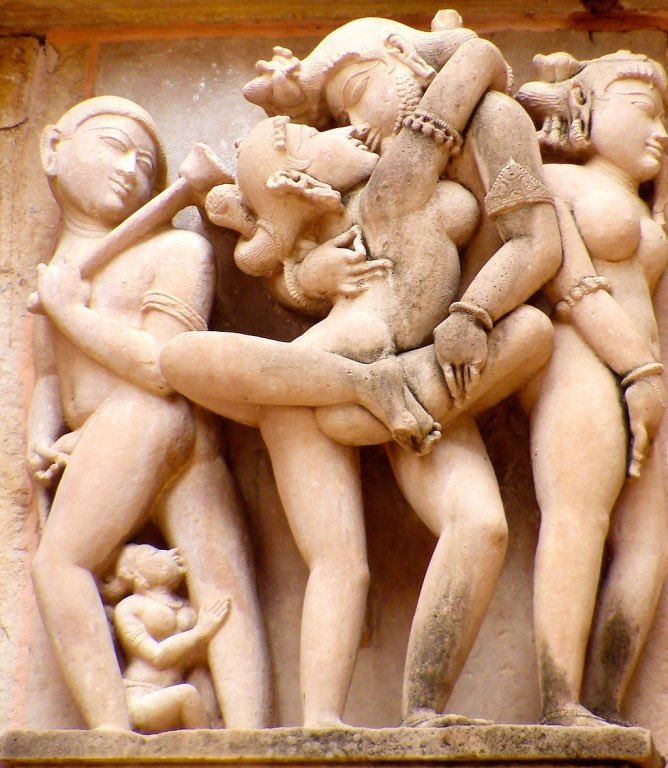Humanity has witnessed various customs and practices that, in the modern context, are considered horrifying and inhumane. One such tradition that cast a dark shadow on the cultural landscape of ancient Brahmin civilization was "Sati Pratha," or the burning of widows. 

This practice, where a wife would ascend the funeral pyre of her deceased husband, sacrificing her life, has long been a subject of condemnation. Sati Pratha is believed to have originated during the Early Brahmanic Dark Ages (1500 BC–500 BC).
It gained prominence during the Later Brahmanic Dark Ages (500 BC–1000 AD), when the Brahmins, having usurped power, enforced the practice across various regions where they were dominant in the hierarchy of the Varna System. The ritual was justified as a symbol of loyalty,
Pirity and devotion to one's husband, but in reality, it was a symbol of subjugation and oppression faced by women during those times.
In modern times, Swami Prabhupada, the founder of ISKCON (the International Society for Krishna Consciousness), openly endorses this inhumane
In modern times, Swami Prabhupada, the founder of ISKCON (the International Society for Krishna Consciousness), openly endorses this inhumane
practice in his conferences and writings. While he established the first ISKCON headquarters in 1965 in New York, he openly expressed controversial views, discussing subjects like the perceived necessity of rape, promoting atrocities on women, and justifying pedophilia.
Our forthcoming article will delve into these matters in detail. However, for the present discussion, let us focus on his views regarding #SatiPratha, which have raised serious concerns.
#BhagwadPurana:
#BhagwadPurana:
Srimad Bhagvatam 4.28.50
She then prepared a blazing fire with firewood and placed the dead body of her husband upon it. When this was finished, she lamented severely and prepared herself to perish in the fire with her husband.‘
Swami Prabhupada writes on this verse,
She then prepared a blazing fire with firewood and placed the dead body of her husband upon it. When this was finished, she lamented severely and prepared herself to perish in the fire with her husband.‘
Swami Prabhupada writes on this verse,
”It is the long-standing tradition of the Vedic system that a faithful wife dies along with her husband. This is called saha-maraṇa. In Brahmin dominant society, this system was prevalent even to the date of British occupation. At that time, however
wife who did not wish to die with her husband was sometimes forced to do so by her relatives. Formerly, that was not the case the wife used to enter the fire voluntarily. From the early history, we find that when Maharaja pandu died, he was survived by two wives, Madri and Kunti.
The question was whether both should die or one should die. After the death of Maharaja Pandu, his wives settled that one should remain and the other should go.
Madri would perish with her husband in the fire, and Kuntī would remain to take charge of the five Pandava children.
Madri would perish with her husband in the fire, and Kuntī would remain to take charge of the five Pandava children.
Even as late as 1936, we saw a devoted wife voluntarily enter the fire of her husband.’’ A.C Bhaktivedanta Swami Prabhupada on Bhagwad Purana 4.28.50 Source: vanisource.org/wiki/SB_4.28.50
He also wrote,
In the Vedic culture, there is a system known as satī or saha-maraṇa, in which a woman dies with her husband.
According to this system, if the husband dies, the wife will voluntarily die by falling in the blazing funeral pyre of her husband.
In the Vedic culture, there is a system known as satī or saha-maraṇa, in which a woman dies with her husband.
According to this system, if the husband dies, the wife will voluntarily die by falling in the blazing funeral pyre of her husband.
Here, in this verse, the feelings inherent in this culture are expressed by the wife of the brāhmaṇa. A woman without a husband is like a dead body. Therefore, according to Vedic culture, a girl must be married. This is the responsibility of her father.
A girl may be given in charity, and a husband may have more than one wife, but a girl must be married. This is Vedic culture. A woman is supposed to be always dependent—in her childhood she is dependent on her father, in youth on her husband, and in old age on her elderly sons.
According to Manu-saṁhitā, she is never independent. Independence for a woman means miserable life. In this age, so many girls are unmarried and falsely imagining themselves free, but their life is miserable.
Here is an instance in which a woman felt that without her husband, she was nothing but a dead body.’’Swami Prabhupada on Bhagwad Purana 9.9.32 Source: vanisource.org/wiki/SB_9.9.32
• • •
Missing some Tweet in this thread? You can try to
force a refresh

 Read on Twitter
Read on Twitter










